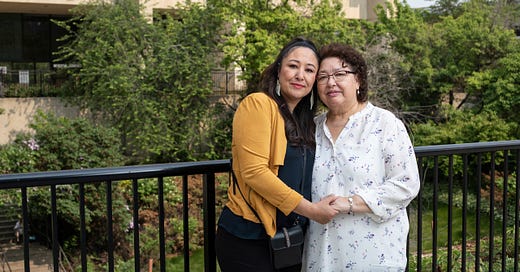Indigenous Women in Canada Continue to Face Forced Sterilization
TORONTO — Despite significant progress in human rights and reproductive healthcare around the world, Canada is grappling with an ongoing crisis: the forced sterilization of Indigenous women. Activists, doctors, politicians, and multiple class-action lawsuits have shed light on this practice, which has persisted long after other wealthy nations ceased such human rights violations. Experts argue that this disturbing phenomenon, considered a form of genocide, exposes Canada's failure to confront its troubled colonial past.
While there are no precise figures on the number of women affected, Indigenous leaders and Senator Yvonne Boyer estimate that at least 12,000 women have experienced forced sterilization since the 1970s. The limited data available suggests that the practice is alarmingly prevalent. In a recent case, Dr. Andrew Kotaska was penalized for forcibly sterilizing an Indigenous woman in 2019. The investigation revealed that there was no medical justification for the procedure, leading to findings of unprofessional conduct against the doctor.
Forced sterilization of Indigenous women has a long history in Canada, rooted in eugenics legislation that deemed them inferior. In contrast, the United States discontinued the practice in the 1970s after implementing regulations requiring informed consent for sterilizations of Native American women. The Geneva Conventions classify forced sterilization as a form of genocide and crime against humanity. The Canadian government has condemned forced sterilization elsewhere, including reports of the practice among Uyghur women in China.
While Prime Minister Justin Trudeau acknowledged the genocide committed against Indigenous women in 2019, activists argue that little has been done to address the underlying prejudices that enable forced sterilizations to persist. In response to the issue, the Canadian government stated that it recognizes forced sterilization as a criminal offense and an assault. It pledged to work with provincial and territorial authorities, health agencies, and Indigenous groups to eradicate systemic racism in the healthcare system.
Indigenous communities make up about 5% of Canada's population, with significant populations residing in the north, including Nunavut, Yukon, and the Northwest Territories. These communities face significant health challenges, including elevated suicide rates among Indigenous youth and a life expectancy that is approximately 14 years shorter than that of other Canadians. Until the 1990s, Indigenous people were often treated in racially segregated hospitals, where rampant abuse was reported.
Gathering comprehensive data on sterilizations, with or without consent, remains challenging. Canada's national health agency does not routinely collect information on sterilizations, including patient ethnicity and the conditions under which the procedures are performed. The lack of data contributes to the difficulty in determining the true extent of the issue and addressing it effectively.
Survivors' testimonies provide harrowing accounts of forced sterilizations. Sylvia Tuckanow, who gave birth in a Saskatoon hospital in 2001, described being disoriented from medication and tied to a bed while the doctor performed the procedure without her consent. Similar stories have emerged from across the country, shedding light on the traumatic experiences endured by Indigenous women.
The Canadian government has taken some steps to address forced sterilizations, including allocating funds to improve access to culturally safe healthcare services and supporting Indigenous midwifery initiatives. However, survivors and activists argue that more comprehensive action is necessary. The Senate report on forced sterilization made several recommendations, including compensating victims, addressing systemic racism in healthcare, and issuing a formal apology.
Dr. Alika Lafontaine, the first Indigenous president of the Canadian Medical Association, highlighted the power imbalance within the healthcare system and the lack of informed consent. Many Indigenous women must travel long distances to give birth, and language and cultural barriers often impede effective communication with healthcare providers. Indigenous communities demand meaningful change and greater representation of Indigenous healthcare professionals to ensure culturally appropriate care.
Gerri Sharpe, president of Pauktuutit Inuit Women of Canada, emphasized the importance of Indigenous representation in healthcare settings. She highlighted the challenges posed by communication barriers and the misinterpretation of Inuit cultural cues during medical interactions.
Dr. Ewan Affleck, the filmmaker behind "The Unforgotten," a documentary exploring racism against Indigenous people in Canada, underscored the persistence of forced sterilization, albeit in more subtle forms. Affleck identified a power imbalance in the healthcare system, noting that an Indigenous woman may be more likely to agree to sterilization if suggested by a white doctor.
Currently, there are five class-action lawsuits against health, provincial, and federal authorities related to forced sterilizations across multiple provinces. May Sarah Cardinal, the representative plaintiff in the Alberta case, recounted her experience of being coerced into sterilization without being informed of the irreversible consequences. Such stories reveal the lasting trauma experienced by Indigenous women and the urgent need for justice and accountability.
Despite being a progressive nation, Canada now finds itself aligned with countries like India and China, where forced sterilizations disproportionately affect ethnic minority women. In Europe, forced sterilizations affected over 90,000 Roma women in the past, but concerted efforts, including court rulings, apologies, reparations, and policy changes, have curbed the practice. The United States, in contrast, has yet to offer a formal apology or compensation for forced sterilizations performed on Native American women.
Apologies and reparations are considered essential steps towards healing the fractured relationship between Canada and its Indigenous communities. To this end, only the province of Alberta has issued an apology and provided compensation to those affected before 1972. Survivors like Morningstar Mercredi continue to grapple with the consequences of forced sterilization and stress the importance of holding accountable those responsible for such human rights violations.
The forced sterilization of Indigenous women in Canada stands as a dark chapter in the country's history, undermining progress made in human rights and reproductive healthcare. As survivors demand justice and systemic change, it is clear that Canada must confront its past, eradicate systemic racism within the healthcare system, and ensure the protection and respect of Indigenous rights. Only then can the country begin the long process of healing and reconciliation with its Indigenous communities.




